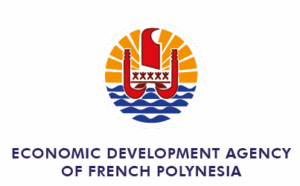Frequently Asked Questions
French Polynesia is not listed as a tax haven. However, there is no income tax, inheritance tax or wealth tax (ISF). Sole proprietorships and legal entities, in particular, are subject to direct taxation. Corporate income tax is set at 27%.
For several years now, French Polynesia has also offered numerous incentives for investment in priority sectors.
Foreign investments in the fishing, aquaculture, pearl farming, audiovisual or telecommunications sectors, and in the acquisition of real estate assets or rights, are subject to prior authorization by the Council of Ministers.
Foreign investments in sectors other than those listed above are subject to a “declaration of foreign investment in French Polynesia” addressed to the President of the Country. This declaration must be made within three months of the investment taking place.
Accommodation and tourist services/activities, renewable energies, industries processing and adding value to local resources in the primary sector, digital services, etc., and all operations with a real economic nature.
None, apart from the traceability of banking transactions.
No, there is no specific tax regime for foreign investment. Any company making an investment in French Polynesia is subject to the applicable tax rules.
In the hotel industry, the number of foreign nationals on staff must not exceed 8%.
In other sectors, there are no special regulations, but the employment of local staff is strongly recommended.
Foreign workers must obtain a residence permit issued by the “Direction de la réglementation et du contrôle de la légalité” and a work permit issued by the Polynesian administration.
The Economic Development Agency assists foreign investors in all their dealings with French Polynesia.
No, investors can stay as long as they like. Investors need a long-term residence permit, which they can obtain from a French embassy abroad. This is generally a one-year renewable work visa. There is no renewal limit.
No. French Polynesia can issue work permits required for visas. All visas and residence permits are issued by the French government or via a French embassy abroad.
Land, islands and islets can be accessed through long-term leases, either with private individuals (through notaries or real estate firms) or with the country (which makes various state-owned lands available to foreign investors).



